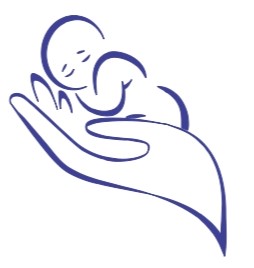Diarrhea is a common health issue in children that can cause concern for parents.
While most cases are mild and resolve on their own, it’s important to understand the causes, symptoms, and treatments to ensure your child’s quick recovery.
What Is Diarrhea and Why Does It Happen?
Diarrhea refers to frequent, loose, or watery bowel movements. It can be accompanied by symptoms like cramping, abdominal pain, and dehydration. Most children experience diarrhea occasionally, and it typically lasts a few days.
The leading cause of diarrhea in children is an infection in the intestines known as gastroenteritis. This condition inflames the stomach and intestines, leading to the following symptoms:
- Crampy abdominal pain
- Watery stools lasting 3–5 days
- Fever, nausea, or vomiting
Gastroenteritis can be caused by:
- Viruses: The most common cause of diarrhea in children.
- Bacteria: Often responsible for food poisoning.
- Parasites: Less common but significant, especially in group settings like daycare centers.
What Are the Symptoms and Causes of Diarrhea?
Symptoms of Diarrhea in Children:
- Frequent, watery stools
- Belly pain or cramping
- Vomiting and loss of appetite
- Fever or chills
- Signs of dehydration (dry mouth, fewer tears, reduced urination)
Key Causes of Diarrhea:
- Viral Infections:
Viruses like rotavirus and norovirus are the most common culprits. Rotavirus often affects infants and young children, especially during winter and spring. Symptoms include watery diarrhea, vomiting, and fever. Timely vaccination can prevent rotavirus-related diarrhea.
- Bacterial Infections:
Bacteria such as Salmonella, E. coli, and Shigella can cause food poisoning, leading to diarrhea, vomiting, and abdominal cramps. Symptoms often appear within hours of consuming contaminated food or water.
- Parasitic Infections:
Giardia is the most common parasite responsible for diarrhea in children. It spreads through contaminated water or contact with infected individuals, making young children in daycare centers more vulnerable.
- Other Causes:
- Food-related issues: Drinking excessive juice or sugary beverages can cause “toddler’s diarrhea.”
- Allergies or intolerances: Food allergies or lactose intolerance may lead to digestive upset.
- Antibiotics: Some children develop diarrhea as a side effect of antibiotics.
- Chronic conditions: Conditions like celiac disease, Crohn’s disease, or irritable bowel syndrome can also cause recurring diarrhea.
Understanding the root cause is essential for effective treatment. If diarrhea persists or is accompanied by severe symptoms, visit Meenakshi Clinic for expert evaluation and care.
How Is Diarrhea Diagnosed?
Diagnosing diarrhea involves a combination of medical history, physical examination, and, if necessary, diagnostic tests.
What to Expect During a Doctor’s Visit:
- Medical History: The doctor will ask about:
- Recent meals or possible exposure to contaminated food or water.
- The duration, frequency, and appearance of the diarrhea (e.g., watery or bloody).
- Physical Examination: This helps identify signs of dehydration and infection.
- Diagnostic Tests (if needed):
- Stool tests to detect bacteria, viruses, or parasites.
- Blood and urine tests to evaluate dehydration or rule out other conditions.
How Is Diarrhea Treated in Children?
The treatment for diarrhea depends on its cause. Here’s how different types of diarrhea are typically treated:
- Viral Diarrhea:
- Most cases resolve on their own within a few days.
- Focus on hydration and a regular diet to support recovery.
- Bacterial Diarrhea:
- Antibiotics may be required if a bacterial infection is confirmed.
- Avoid giving anti-diarrheal medications without medical advice.
- Parasitic Diarrhea:
- Anti-parasitic medications are necessary for infections like Giardia.
General Home Care Tips for Children with Diarrhea:
- Hydration:
- Encourage frequent sips of oral rehydration solutions (ORS) like Pedialyte or Enfalyte. These contain the right balance of water, sugar, and salt to prevent dehydration.
- Avoid sugary drinks, soda, and undiluted juices, which can worsen diarrhea.
- Diet:
- Offer small, bland meals such as rice, bananas, applesauce, toast, and boiled potatoes.
- Continue breastfeeding or formula feeding for infants unless advised otherwise.
- Rest and Comfort:
- Allow your child to rest and recover in a comfortable environment.
When Medical Attention Is Needed:
If your child shows signs of severe dehydration (dry mouth, sunken eyes, dizziness), or if diarrhea persists for several days, seek immediate medical care. At Meenakshi Clinic, we’re equipped to provide IV fluids and other treatments for severe cases.
How Can Diarrhea Be Prevented?
Prevention is key to protecting children from diarrhea. Here are some practical steps you can take:
- Practice Good Hygiene:
- Teach your child to wash their hands with soap and water for at least 20 seconds, especially after using the bathroom and before eating.
- Use hand sanitizers when soap and water are unavailable.
- Clean and Sanitize Surfaces:
- Disinfect frequently touched surfaces like doorknobs, tabletops, and toys.
- Follow Food Safety Guidelines:
- Store food properly and avoid consuming expired items.
- Wash fruits and vegetables thoroughly before eating.
- Cook meat, poultry, and eggs to the recommended temperatures.
- Vaccinate Against Rotavirus:
- Ensure your child receives all recommended vaccinations, including the rotavirus vaccine, to reduce the risk of severe diarrhea.
- Avoid Contaminated Water:
- Use clean, filtered water for drinking and cooking.
- Teach children to avoid drinking from untreated water sources.
When Should You Visit Meenakshi Clinic?
While most cases of diarrhea are mild, you should seek medical attention if your child:
- Can’t keep liquids down due to vomiting.
- Shows signs of dehydration (dry mouth, fewer tears, reduced urination).
- Has a high fever.
- Passes stools with blood or mucus.
- Experiences diarrhea lasting more than a few days.
Why Choose Meenakshi Clinic?
At Meenakshi Clinic, we understand the challenges of caring for a sick child. Our team of experienced doctors provides:
- Accurate diagnosis and effective treatment plans.
- Personalized advice for home care and prevention.
- Supportive care for parents to ensure your child’s speedy recovery.
Contact Meenakshi Clinic today for expert pediatric care and let us help your child recover quickly and stay healthy!

